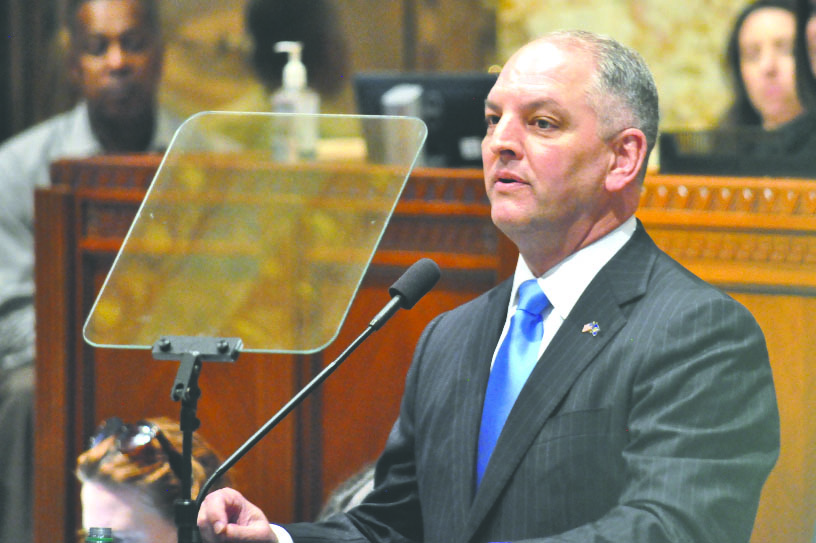BATON ROUGE, La. (AP) — Louisiana’s next special session on taxes will begin next week, when lawmakers will negotiate whether to replace some expiring taxes whose absence will blow a hole in next year’s budget.
Gov. John Bel Edwards set the start and end dates Monday along with broad parameters for what taxes can be considered. Lawmakers are working to wrap up their regular session this week. The special session is scheduled to start May 22 and end on June 4.
About $1.4 billion in temporary, mostly sales taxes, passed by lawmakers in 2015 and 2016 to plug budget holes are expiring on July 1, with the start of the new budget year. With other tax offsets, Louisiana is estimated to get $648 million less in general tax dollars next year than this year.
Edwards and many lawmakers say replacement taxes are needed to avoid devastating cuts to health, education and safety programs.
“It simply is not possible to fashion a responsible budget that adequately funds our critical priorities with the revenue that is available next fiscal year,” the Democratic governor said.
A February special session ended in gridlock in the House, with lawmakers failing to pass any taxes to close the budget gap. The tax ideas included in the parameters Edwards issued for the next special session are similar to proposals spurned by the House only months ago.
“There are not new options to consider. They don’t get better with age. It’s not like a good wine,” the governor said. But he added that he expects the nearing budget cuts to change the outcome: “I think there’s a greater sense of urgency now, but I also think there’s a greater sense of clarity.”
Lawmakers have been rushing through the more than 1,400 bills filed in the regular session — during which taxes can’t be considered — to make time for the tax debates. Wrapping up those debates by June 4, which is when the regular session was supposed to end, could avoid extra expenses for Louisiana taxpayers. The special tax session in February that failed cost taxpayers nearly $650,000.
Edwards wants the Legislature to stall the operating budget for next year until the special session. But lawmakers have been working to pass a budget containing the deep cuts required in the regular session, saying they feel they have a constitutional obligation to do so.
They said they could fill in additional money in the special session.
It’s unclear if Edwards would veto a budget if it reaches his desk ahead of the special session.
The $27 billion state operating budget that scraped through the House, on a nearly party-line vote of Republican support, would cut public safety programs, cover only 80 percent of tuition costs through TOPS and steeply slash financing for health services. Safety-net hospitals would be shuttered, and tens of thousands of people who are elderly and disabled would lose the state aid that keeps them in nursing homes and group homes.
Senators reworked the proposal. Their budget version, to be debated by the full Senate on Tuesday, would shield nursing home residents from evictions and keep the state’s safety-net hospitals from closure. But to make the numbers work, senators propose deeply cutting financing to colleges and across agencies, eliminating the state’s food stamp program and jeopardizing public safety programs. TOPS would cover only 70 percent of college tuition costs.
Senators said the cuts are so deep the plan would shut down much of state government, but they said they expect more tax revenue to come from the special session to fill the gaps.




